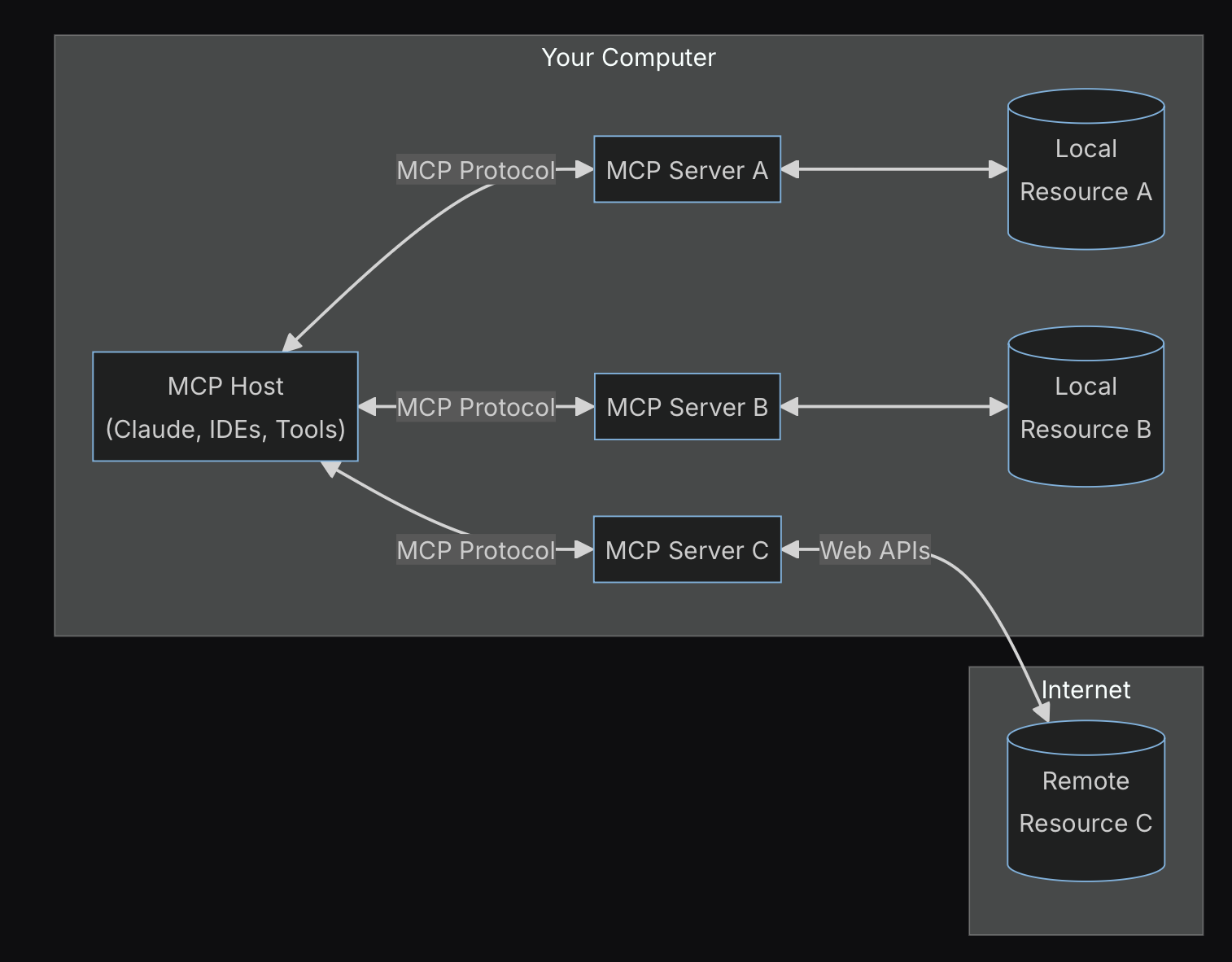
Anthropic has released a new open-source standard and tools designed to connect LLM applications and external data sources or tools.
It described the Model Context Protocol (MCP) as a "new standard for connecting AI assistants to the systems where data lives", including content repositories, business tools, and development environments. It's designed to help frontier models produce better responses.
The open standard enables secure, standardised connections between AI applications and various resources using a client-server model, where host applications such as Claude Desktop interact with MCP servers that expose resources.
It has released software development kits (SDKs) for those looking to build their own MCP servers in Python and TypeScript.
Anthropic said:
MCP servers provide focused functionality like resources, tools, prompts, and other capabilities that can be reused across many client applications. These servers are designed to be easy to build, highly composable, and modular.
Its key design principles, it added, are that:
- "Servers are extremely easy to build with clear, simple interfaces"
- "Multiple servers can be composed seamlessly through a shared protocol"
- "Each server operates in isolation and cannot access conversation context"
- "Features can be added progressively through capability negotiation"
One user, Pietro Schirano, founder of a content-focused AI firm called Everart, said the frameworks give Anthropic's model "superpowers" that "effectively turn the Claude app into an API."
Anthropic warned that even the most sophisticated AI models are "constrained by their isolation from data" and "trapped" within silos and legacy technology (a situation we're sure many human readers will empathise with).
Whenever a new data source emerges, it requires a custom implementation, which makes "truly connected systems difficult to scale."
"MCP addresses this challenge," Anthtroic wrote. "It provides a universal, open standard for connecting AI systems with data sources, replacing fragmented integrations with a single protocol. The result is a simpler, more reliable way to give AI systems access to the data they need."
Today @Anthropic is releasing MCP, a framework that allows Claude to run servers, giving it superpowers and effectively turning the Claude app into an API.
— Pietro Schirano (@skirano) November 25, 2024
We created some server that I think you'll love!
FileSystem: Claude can create, read, and edit files and folders locally. pic.twitter.com/2XnRVFltR4
Anthropic's open standard builds two-way connections between data sources and AI-powered tools. It's based around a relatively straightforward architecture which enables developers to expose data through MCP servers or build AI applications called MCP clients that connect to these servers.
MCP, it said, provides a standardised way for applications to share contextual information with language models; expose tools and capabilities to AI systems; build composable integrations and workflows.
The protocol uses JSON-RPC 2.0 messages to establish communication between:
- Hosts: LLM applications that initiate connections
- Clients: Connectors within the host application
- Servers: Services that provide context and capabilities
Although Claude 3.5 Sonnet is "adept" at building MCP server implementations, Anthropic will share pre-built MCP servers for popular enterprise systems like Google Drive, Slack, GitHub, Git, Postgres, and Puppeteer.
Block (formerly Square) has already integrated MCP into its systems, while development tools companies including Zed, Replit, Codeium, and Sourcegraph are working with MCP to enhance their platforms by enabling AI agents to retrieve information to help it understand the context around coding tasks to produce better code.
"At Block, open source is more than a development model - it’s the foundation of our work and a commitment to creating technology that drives meaningful change and serves as a public good for all,” said Dhanji R. Prasanna, Chief Technology Officer at Block.
“Open technologies like the Model Context Protocol are the bridges that connect AI to real-world applications, ensuring innovation is accessible, transparent, and rooted in collaboration. We are excited to partner on a protocol and use it to build agentic systems, which remove the burden of the mechanical so people can focus on the creative.”

Instead of maintaining separate connectors for each data source, developers can now build against a standard protocol. As the ecosystem matures, AI systems will maintain context as they move between different tools and datasets, replacing today's fragmented integrations with a more sustainable architecture.
Follow these links to find specifications and SDKs, an open-source repository or local support the Claude Desktop apps.
